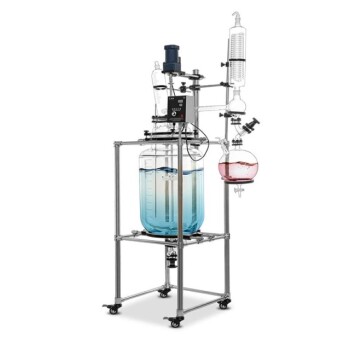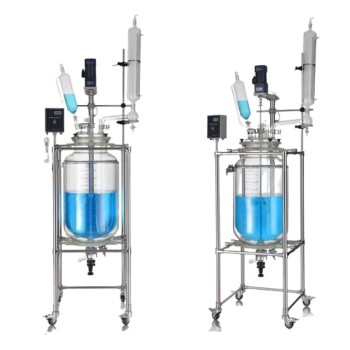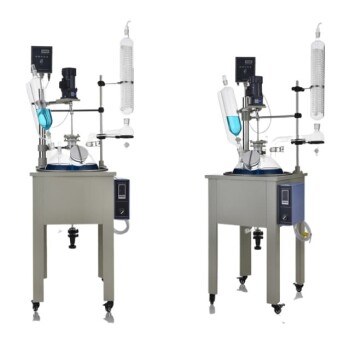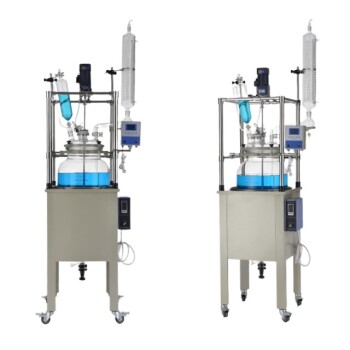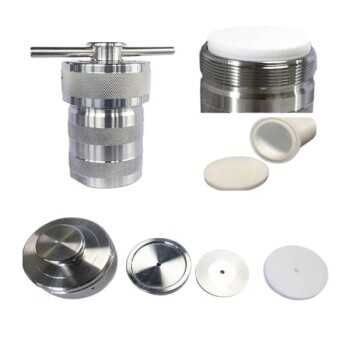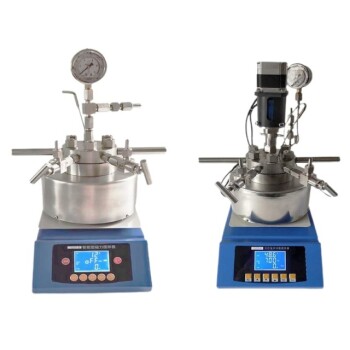Jacketed reactors are versatile equipment widely used across industries such as pharmaceuticals, food, chemicals, and engine oil production. Their primary function is to provide precise temperature control during chemical reactions, ensuring optimal conditions for processes like distillation, crystallization, extraction, and API (Active Pharmaceutical Ingredient) manufacturing. By regulating heat transfer, jacketed reactors enhance product quality, manage exothermic reactions, and improve the efficiency of mixing and viscosity control. They are essential in industries where controlled environments are critical for achieving consistent and high-quality results.
Key Points Explained:

-
Temperature Control in Chemical Reactions:
- Jacketed reactors are designed to maintain precise temperature conditions during chemical reactions. This is particularly important for exothermic reactions, where excessive heat can lead to safety hazards or product degradation.
- The jacket surrounding the reactor allows for the circulation of heating or cooling media (e.g., water, steam, or oil), enabling efficient heat transfer and temperature regulation.
-
Applications in Pharmaceuticals:
- In the pharmaceutical industry, jacketed reactors are used for the production of APIs, crystallization, and other processes requiring strict temperature control.
- They ensure consistent product quality and compliance with regulatory standards, which are critical in drug manufacturing.
-
Use in Food and Chemical Industries:
- Jacketed reactors are employed in food processing for tasks like mixing, heating, and cooling, ensuring safe and efficient production.
- In the chemical industry, they facilitate processes such as distillation, extraction, and polymerization, where precise temperature management is essential.
-
Improved Product Quality:
- By maintaining optimal reaction conditions, jacketed reactors enhance the quality of the final product. This is particularly important in industries like engine oil production, where viscosity control and thermal stability are critical.
-
Versatility Across Industries:
- Jacketed reactors are used in a wide range of industries, including dyes, food, chemicals, and pharmaceuticals, due to their ability to handle diverse processes and materials.
- Their adaptability makes them a valuable asset for industries requiring controlled environments and efficient mixing.
-
Handling Highly Viscous Liquids:
- The design of jacketed reactors allows for effective mixing and temperature control of highly viscous liquids, which is essential in processes like polymer production and engine oil manufacturing.
-
Post-Processing and Final Product Refinement:
- Jacketed reactors are also used in post-processing stages, such as purification and crystallization, to ensure the final product meets the required specifications.
In summary, jacketed reactors are indispensable in industries where precise temperature control, efficient mixing, and high-quality output are paramount. Their versatility and ability to handle a wide range of applications make them a critical component in modern industrial processes.
Summary Table:
| Key Feature | Description |
|---|---|
| Temperature Control | Maintains precise conditions for chemical reactions, especially exothermic ones. |
| Applications in Pharmaceuticals | Used for API production, crystallization, and regulatory-compliant processes. |
| Food & Chemical Industries | Facilitates mixing, heating, cooling, distillation, and polymerization. |
| Improved Product Quality | Ensures optimal reaction conditions for better viscosity control and stability. |
| Versatility | Adaptable for diverse industries like dyes, food, chemicals, and pharmaceuticals. |
| Handling Viscous Liquids | Effective mixing and temperature control for polymers and engine oils. |
| Post-Processing | Used in purification and crystallization for final product refinement. |
Ready to enhance your industrial processes with jacketed reactors? Contact us today for expert guidance and solutions!

